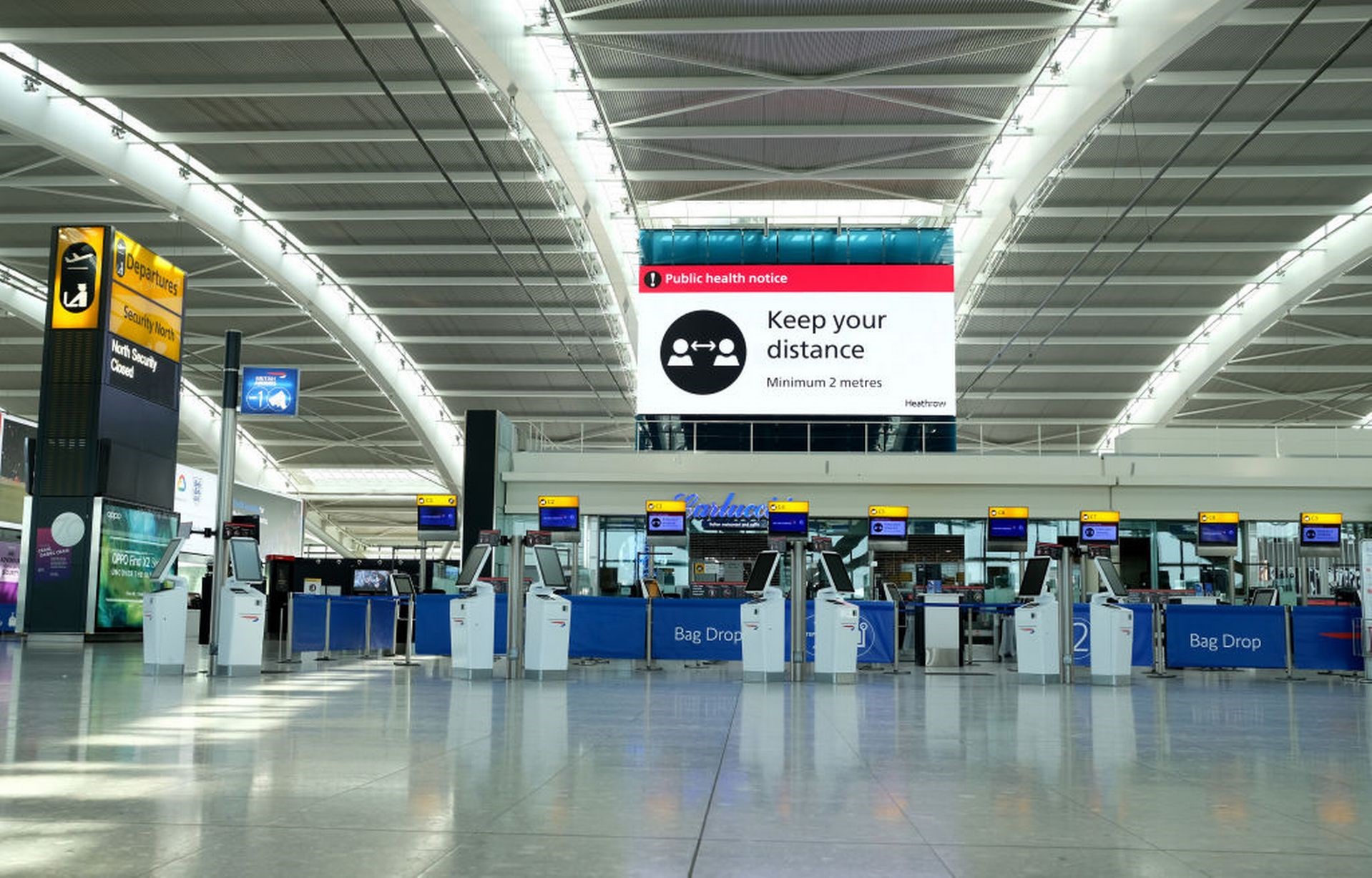Midsize companies getting more serious about managing travel has been one vector for the increase in travel management outsourcing. Another is the fact that the job itself is evolving and requires more specialized skills.
Outsourced travel management—roles where the person doing the work is not employed directly by the company they are working for—is on the increase. “The number of [outsourced] engagements we have has almost doubled since 2019,” says Sara Andell, director, consulting strategy for American Express Global Business Travel, generally considered the largest provider of outsourced travel managers. “Outsourcing is now the biggest part of Amex GBT consulting by both headcount and revenue. We have just shy of 100 individuals working for 70 clients.”
Lynne Griffiths, CEO of corporate travel recruitment specialist Sirius Talent Solutions, who places plenty of insourced travel managers too, agrees. “There has been a lot more outsourcing in the last 12-18 months,” she says.
One explanation identified by Andell is medium-sized companies beginning to manage their travel activities more systematically. “They are appreciating travel is complex,” she says. “It’s ‘I need that travel manager role but I don’t need a full-time person and where am I going to find the expertise within my business?”
Larger companies which do have full-time travel managers also find travel increasingly complicated, according to Louise Kilgannon, head of outsourcing for Festive Road, another major outsourcing provider. “Travel managers are doers but they can’t be experts in everything,” she says, pointing to sustainability legislation and technology as fields of knowledge where additional help might be needed.
In addition to these strategic tasks, there are also more outsourced operational and technical roles. Examples cited by Andell include managing the inbox of communications from travelers, creating traveler awareness campaigns and administering online booking tools or payment card reconciliation.
Business Travel News’ Salary & Job Satisfaction Report showed a clear trend that travel management strategy is focusing more on technology and data solutions than ever before, with the intent of optimizing programs and driving innovation.
Forty-six percent of SME travel managers said they were more focused in the last 12 months on corporate travel technology and booking tools, while 44 percent said they were more focused on travel program innovation than they had been 12 months ago. Forty-two percent said they were analyzing more data.
BTN’s survey did not inquire about how heavily these programs are leaning on outsourced resources to support such initiatives, but outsourcing providers told BTN the changing focus is having an impact.
In the past, Kilgannon said, travel managers received internal support from departments as IT and corporate communications, but “all of a sudden some of these roles are sitting within the travel program so the regular talent pool where you have to find people has to expand. Six or seven years ago, outsourcing was ‘I need three regional travel managers.’ We still have a bit of that but there’s definitely a shift.”
Part of the Team? Well… Almost
There is a clear overlap between these specialized outsourced tasks and regular consulting services provided by the likes of Amex GBT Consulting and Festive Road, but they are not the same.
“The difference with being a consultant is that as an outsourced travel manager I was empowered to make decisions on the company’s behalf,” says one veteran whose career has included both insourced and outsourced travel management and independent consulting roles. “Consultants bring ideas to a client, which makes the decision.”
Length of service is not the determining factor. “I worked for a bank for eight years but that was as a consultant: It was a continuous succession of projects and I didn’t make decisions,” the same travel manager says.Another crucial determinant is the extent to which the individual is treated and also perceived as part of the company to which they are assigned. “Typically that individual works in the client’s host system,” says Andell. “They will have a client laptop and perform tasks on the client’s behalf in the system.”Kilgannon adds: “With an outsourcing engagement the individual becomes part of the travel team. They are really integrated and are presented to internal stakeholders and suppliers as a team member.” Typically, the outsourced travel manager will have an internal e-mail address at the client company.
If an outsourced travel manager acts and looks so much like an insourced one, one might wonder why companies don’t simply insource instead? The key reason is flexbility, and not just because of the opportunity to create a role that is not full-time. After all, it is perfectly possible to insource permanent but part-time staff.
Instead, says the veteran travel manager of his outsourcing days, employers could “flex the work up or down; or, if they suddenly decided they were going to restructure or sell the company, they didn’t have to worry about redundancy [or, severance] costs for me. It was a good way to have the expertise without having the headcount.”
There is also more flexibility in matching personnel to the changing needs of the travel program. “The client can scale,” says Andell. “We might come in to do one piece of work and then it will develop into something else, or functionally you might want a completely different resource at different times. At the end of the contract term, that individual will come back to us and play a different role, or it can be extended by the client. It has a lot of advantages against a long-term employment contract.”
Weighed against these advantages, Kilgannon counsels that “there are some barriers in an outsourced role. We tell our clients to think really carefully about this. Your access to internal stakeholders can be slightly limited. Access to internal data where there are external regulatory bodies can also be ring-fenced from an externally outsourced team.”
Likewise, there are a mixture of pros and cons for travel managers who opt for outsourced roles. One who has enjoyed the work very much is Esther van der Aa, especially for the variety it offers. “Being outsourced provides fresh challenges,” she says. “I learn a lot from different companies and their different travel programs. It brings me extra expertise from which my clients can benefit.”
Van der Aa also finds that outsourced travel managers are more respected. “That has constantly been my experience,” she says. “When I was in-house I had more trouble standing in front of the board and persuading them to follow my direction.”
Conversely, however, van der Aa finds outsourced travel managers can be treated less favorably by rank-and-file employees, who sometimes level accusations of “double-hatting”: serving two masters. “They imply that you are playing for multiple teams and not 100 percent committed to the company,” she says.
Support or Threat?
Another constituency that might regard outsourced travel management with suspicion is insourced travel managers. Are the outsourcers coming for their jobs?
Kilgannon and Andell both refute this suggestion emphatically and both also say that in the vast majority of cases the people commissioning outsourced travel managers are insourced travel managers themselves seeking additional support for their team.
“It’s not to say we can’t do the global travel management role,” says Andell, “but a lot more are regional or doing particular specialist functions. The idea we are coming for your job… I would rather flip it and say how can we help you be really successful at your role by giving you people who are specialists? I can see a really strong case for having an in-house manager. It’s a stakeholder role, ultimately, where you are having to talk to finance, HR and budget-holders. Often that could be better executed by someone in-house.”
Recruitment specialist Griffiths agrees that outsourced travel managers are not taking insourced travel managers’ jobs. Instead, she says, “we used to see lots of travel management company account managers being poached for travel manager roles and now we’re not seeing so much of that.”
One senior travel manager who regularly makes use of both specialized and operational outsourced travel managers is Mia Andersson, head of global travel management for Scania. She is confident insourced senior travel managers’ roles are safe.
“You can outsource the whole program but you still need someone internally to be the quality checker and make sure the delivery is according to the contract,” Andersson says. “Having a general procurement person who somewhat knows travel to do that wouldn’t be good. You need a senior person knowledgeable about the category.”
Source : Business Travel News by Northstar


















